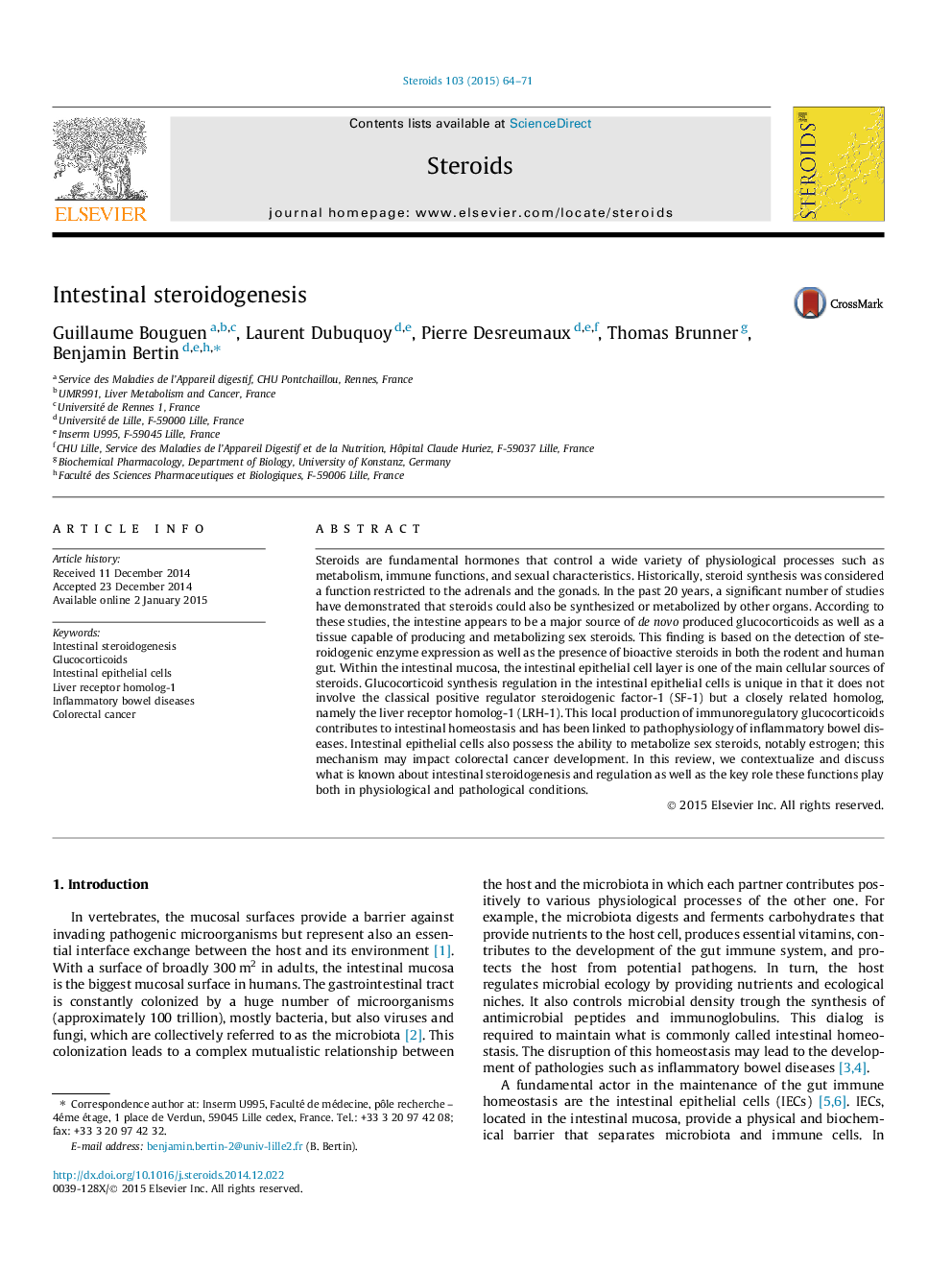| کد مقاله | کد نشریه | سال انتشار | مقاله انگلیسی | نسخه تمام متن |
|---|---|---|---|---|
| 2027781 | 1542705 | 2015 | 8 صفحه PDF | دانلود رایگان |
Steroids are fundamental hormones that control a wide variety of physiological processes such as metabolism, immune functions, and sexual characteristics. Historically, steroid synthesis was considered a function restricted to the adrenals and the gonads. In the past 20 years, a significant number of studies have demonstrated that steroids could also be synthesized or metabolized by other organs. According to these studies, the intestine appears to be a major source of de novo produced glucocorticoids as well as a tissue capable of producing and metabolizing sex steroids. This finding is based on the detection of steroidogenic enzyme expression as well as the presence of bioactive steroids in both the rodent and human gut. Within the intestinal mucosa, the intestinal epithelial cell layer is one of the main cellular sources of steroids. Glucocorticoid synthesis regulation in the intestinal epithelial cells is unique in that it does not involve the classical positive regulator steroidogenic factor-1 (SF-1) but a closely related homolog, namely the liver receptor homolog-1 (LRH-1). This local production of immunoregulatory glucocorticoids contributes to intestinal homeostasis and has been linked to pathophysiology of inflammatory bowel diseases. Intestinal epithelial cells also possess the ability to metabolize sex steroids, notably estrogen; this mechanism may impact colorectal cancer development. In this review, we contextualize and discuss what is known about intestinal steroidogenesis and regulation as well as the key role these functions play both in physiological and pathological conditions.
Journal: Steroids - Volume 103, November 2015, Pages 64–71
